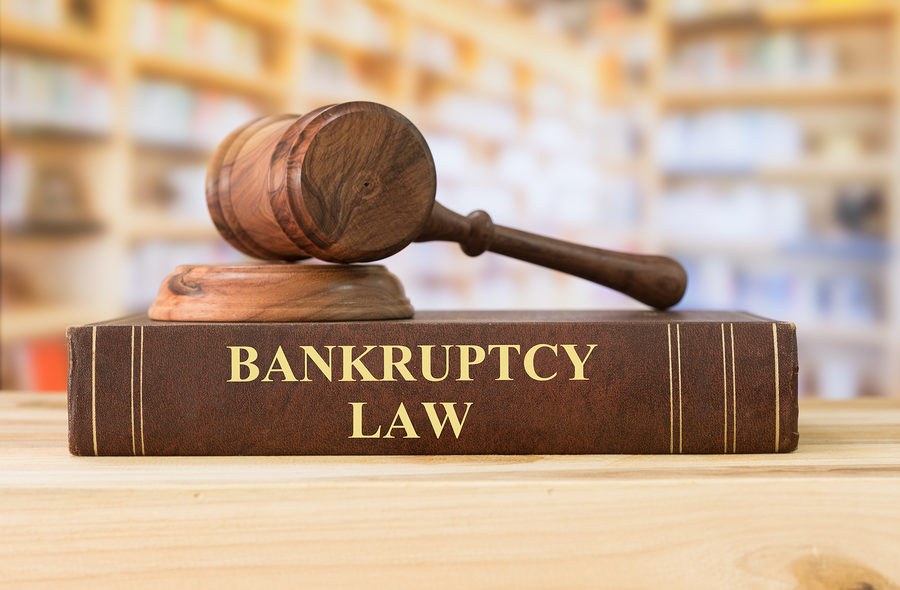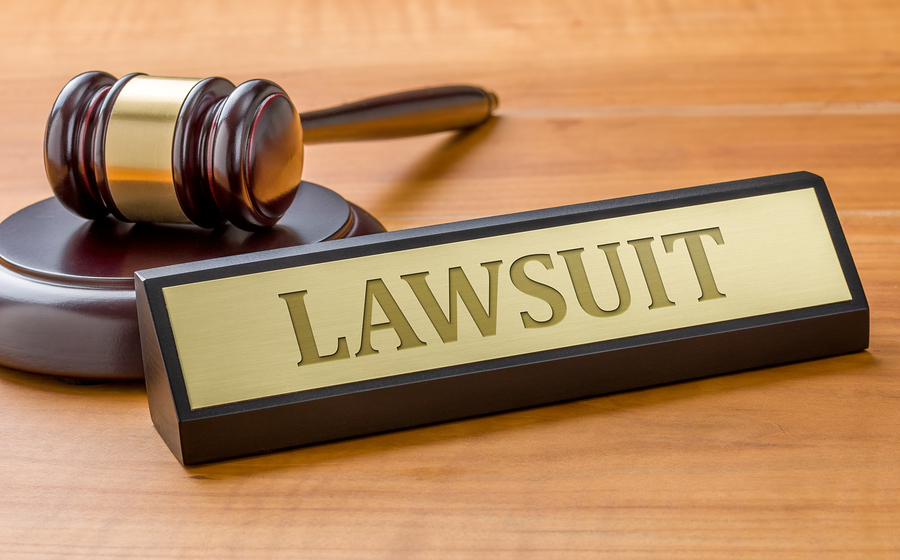When someone is facing a difficult financial situation, one of the main concerns that person may have is losing his or her home. If a person is not able to pay day-to-day expenses, one of the biggest bills that will go unpaid is the mortgage bill. However, if the mortgage is not paid on time for more than 180 days, the lender may decide to proceed with a foreclosure action. The key is to respond quickly to avoid losing your home through foreclosure.
Tag: Chapter 13 Bankruptcy
New Bankruptcy Laws Offer Relief for Veterans, Small Businesses and Farmers
President Trump signed legislation into law on August 23, 2019, that offers bankruptcy relief that will benefit veterans, small business owners and farmers. Now that these changes are being implemented, they will have long-lasting, positive effects when it comes to access to bankruptcy relief for these individuals.
The first piece of legislation is the Family Farmer Relief Act of 2019. It doubles the debt ceiling allowed under the Bankruptcy Code for a “family farmer.” This relief increases the number of farmers eligible to receive relief under Chapter 12 reorganization bankruptcy, which is a special form of bankruptcy that is designed to meet the needs of farmers facing financial difficulty.
How Long Does Bankruptcy Stay on Your Credit Report?
One of the biggest concerns consumers have when it comes to filing for bankruptcy is how long will the bankruptcy remain on their credit report. While a bankruptcy does hurt a person’s credit score, the effect it has depends on several different factors. Ultimately, it depends on the type of bankruptcy being filed and the financial habits exercised by the consumer after the case is over.
Chapter 7
A Chapter 7 bankruptcy case will stay on a consumer’s credit report for ten years from the date of filing. A Chapter 7 bankruptcy case is also known has a liquidation bankruptcy. This form of bankruptcy is normally used by people who have defaulted on their financial obligations and fall below a certain income threshold.
In a Chapter 7 bankruptcy case, the bankruptcy trustee has the authority to liquidate the borrower’s nonexempt assets and use them to pay down qualifying debts. The remaining debts, which are mostly unsecured ones, are discharged. Chapter 7 forgives debts including credit card debts, medical bills and unsecured personal loans. Certain debts, including taxes, criminal fines, child support, spousal support, and student loans, are not discharged usually in a Chapter 7 case. Not all consumers can pursue a Chapter 7 case, however. They must first pass a means test to ensure that their income and asset-to-debt ratios satisfy the requirement to file for Chapter 7 bankruptcy.
A consumer’s credit score can drop by as much as 200 points after filing for Chapter 7 bankruptcy. However, the alternative can be much worse if bankruptcy is not filed and the consumers ends up with multiple defaults and collections on his or her record. By exercising good financial habits over time, a person’s credit score can certainly be rebuilt.
FTC Takes Legal Action Against Corrupt Student Loan Debt Relief Companies
The case comes as a warning to student loan borrowers struggling with their debt and company’s looking to profit from it. The Federal Trade Commission is cracking down on two student loan debt relief operations and the financing company that assisted them. The complaint is alleging the companies charged illegal upfront fees, led consumers to believe the fees would go towards reducing their loan balances, and falsely promised to permanently lower and even eliminate their balances.
The FTC has also charged the companies with locking its customers into high-interest loans and paying their fees without making required disclosures. This caused their customers to sink further into debt.
Tips for Renting an Apartment After Bankruptcy
Filing for bankruptcy gives individuals a financial fresh start, relieving the stress of debt and collection calls. However, declaring bankruptcy can add some additional obstacles to the apartment- hunting process, but not to worry: You can rent an apartment after declaring bankruptcy. It comes down to the application process, and we have some important tips for you.
Honesty Is the Best Policy.
It can be tempting to want to hide the fact that you recently filed for bankruptcy, but unless the apartment or rental home is a property that does not require a credit check for rental applications, this fact will be discovered quickly. The last thing an applicant wants is for the landlord to find this out after the fact before the renter has any chance to explain the situation. If a bankruptcy is on the individual’s history, it is best to be upfront from the beginning. Honesty is the best policy.
Impounded Cars Cannot Be Held After Drivers File for Bankruptcy
Drivers in Chicago who are without their vehicles may be able to get their cars back from city impound lots after filing for bankruptcy, according to a new federal appeals court ruling. The 7th U.S. Circuit Court of Appeals ruled this week that the city’s policy of keeping impounded vehicles belonging to bankruptcy filers despite the fact that an automatic stay has been issued by the bankruptcy court is against federal bankruptcy law.
More specifically, the court argued that this policy essentially discourages drivers from filing for bankruptcy and violates the most basic of protections offered by a bankruptcy filing. It is the court’s belief that the city is doing this to generate revenue rather than help protect their constituents.
Eugene Wedoff, a retired bankruptcy judge who represented the debtors, argued that a Chapter 13 bankruptcy case was meant to allow the filer to get back his or her life by putting property in the filer’s hands. By keeping these impounded vehicles away from their owners, they argue the city is violating their rights.
Chapter 7 vs. Chapter 13 Bankruptcy. Which option is right for you?
There are two types of bankruptcy available to consumers who are struggling with debt- Chapter 7 and Chapter 13 bankruptcy. Choosing the right one is critical to success in eliminating your debt. Below is a comparison guide to help you best decide which bankruptcy is right for you.
Chapter 7 is a form of liquidation and it is often considered the most straightforward type of bankruptcy. Consumers are essentially given a financial fresh start, oftentimes within three months of filing.
Contrary to the bankruptcy myths surrounding Chapter 7, it does not mean you will lose your home, car or retirement savings. In most Chapter 7 cases, filers do not have assets above the legal threshold, which is set by state law and therefore they do not have to lose anything- only their debt. If a person is filing for Chapter 7 bankruptcy in Florida, they can use Florida’s bankruptcy exemptions to protect valuable property.
Chapter 13 restructures your debt into an affordable repayment plan. The debtor’s obligations are combined into one monthly payment to the bankruptcy trustee, which is then distributed to the creditors. Chapter 13 takes into account your income and expenses, the amount of your debt, the types of debt, and even your property value when setting the repayment plan. If you are behind on your mortgage payments, Chapter 13 allows you to get caught up on these payments and save your home from foreclosure.
Chapter 13 plans can last anywhere from three to five years, but most are five-year plans.
If you are struggling to keep up with your Chapter 13 payments, or have recently lost your job or become ill, Chapter 13 may no longer be the right option for you. You can convert a Chapter 13 bankruptcy to a Chapter 7 bankruptcy at any time if you become eligible. Many of our clients are surprised to discover they never have to go to court or see a judge in order to convert their Chapter 13 filing to a Chapter 7.
If you have any questions on this topic or are in financial crisis and considering filing for bankruptcy, contact an experienced Miami bankruptcy attorney who can advise you of all of your options. As an experienced CPA as well as a proven bankruptcy lawyer, Timothy Kingcade knows how to help clients take full advantage of the bankruptcy laws to protect their assets and get successful results. Since 1996 Kingcade Garcia McMaken has been helping people from all walks of life build a better tomorrow. Our attorneys’ help thousands of people every year take advantage of their rights under bankruptcy protection to restart, rebuild and recover. The day you hire our firm, we will contact your creditors to stop the harassment. You can also find useful consumer information on the Kingcade Garcia McMaken website at www.miamibankruptcy.com.
Possible Solutions to the Student Loan Debt Crisis
With more than $1.5 trillion in student loan debt owed nationwide, it can be safe to say that the student loan crisis has reached a breaking point. For lawmakers, one solution to bring change to this problem is allowing student loan debt to be discharged in bankruptcy court.
Another measure that has received a great deal of public support is Senator Elizabeth Warren’s proposal to completely wipe out the majority of America’s student loan debt through a loan forgiveness program. Her proposal has received support from other presidential hopefuls, including Senators Bernie Sanders, Kamala Harris, and Amy Klobuchar, as well as Representative Eric Swallwell, all of whom are co-sponsoring it.
Recently, the American Bankruptcy Institute’s recommendations to allow student loan debt to be discharged in bankruptcy were published.
The average college student graduates with about $30,000 in student loans. This number does not include those students who pursue a master’s or post-graduate degree. Many of those students end up owing six figures in student loan debt.
The burden these loans present to young graduates is intense and can even follow them into retirement. Outstanding student loan debt can affect a person’s job in 13 states. To keep up with loan payments, many borrowers have accumulated credit card debt, just to be able to afford basic living expenses.
Student loans, while not impossible to discharge in bankruptcy, are extremely difficult to eliminate in a Chapter 7 or Chapter 13 bankruptcy case. Other obligations may be eliminated at the end of the case, but the student loan ones will stay with the borrower even after other obligations are discharged.
Bankruptcy courts use the “undue hardship” test to determine whether a filer should have his or her student loan debt discharged, but no set standard has ever been made on what qualifies as an undue hardship, making it very difficult to ever receive relief. New bi-partisan legislation has been introduced and proposes regulations that ensure student loan debt is treated like other forms of consumer debt in bankruptcy, meaning it can be easier to discharge.
Without the ability to discharge the largest amount of debt many bankruptcy filers are carrying; these individuals will never be able to receive the fresh start bankruptcy is meant to give them. While this change may not completely solve the student loan crisis, many financial experts are hopeful it can be a catalyst for change.
Click here to read more on this story.
For borrowers who are struggling with student loan debt, relief options are available. Many student loan borrowers are unaware that they have rights and repayment options available to them, such as postponement of loan payments, reduction of payments or even a complete discharge of the debt. There are ways to file for bankruptcy with student loan debt. It is important you contact an experienced Miami bankruptcy attorney who can advise you of all your options. As an experienced CPA as well as a proven bankruptcy lawyer, Timothy Kingcade knows how to help clients take full advantage of the bankruptcy laws to protect their assets and get successful results. Since 1996 Kingcade Garcia McMaken has been helping people from all walks of life build a better tomorrow. Our attorneys help thousands of people every year take advantage of their rights under bankruptcy protection to restart, rebuild and recover. The day you hire our firm, we will contact your creditors to stop the harassment. You can also find useful consumer information on the Kingcade Garcia McMaken website at www.miamibankruptcy.com.
Debt Consolidation vs. Bankruptcy: The Pros and Cons
If someone is struggling with large amounts of debt, they may be weighing their options between debt consolidation and bankruptcy. There are positives and negatives to both- but ultimately, it depends on a person’s specific financial situation and life circumstance as to which choice is the right one for him or her.
What is Debt Consolidation?
Debt consolidation involves combining a person’s older debt from various sources into one new debt. This consolidation could be done by taking an unsecured personal loan to pay for the total amount owed or by transferring balances from multiple credit cards into one credit card.
Debt consolidation involves making payment to one lender, oftentimes at a lower interest rate. These are two of its appealing factors. However, we can tell you that debt consolidation rarely provides a long-term solution. Our attorneys have helped many clients who were promised one result from a debt consolidation company only to receive far less, and stuck with the remaining debt.
Here are some of the disadvantages of debt consolidation.
- The debt cycle continues: While this option allows the consumer to consolidate multiple sources of debt, it only pays off that debt to combine it into one larger balance. Many consumers make the mistake of utilizing debt consolidation only to continue the cycle of debt.
- Delaying the inevitable: Debt consolidation is oftentimes used as a ‘temporary’ fix, only delaying the inevitable. If a person is struggling to pay off various forms of debt, particularly if that debt is medical debt, credit card debt or personal loans- bankruptcy might be a better option, as the consumer would receive a complete discharge of these debts.
Choosing Bankruptcy as an Option.
Depending on an individual’s income and amount of debt, pursuing a Chapter 7 bankruptcy case may be the wisest option to discharge the debt or a Chapter 13 bankruptcy case to reorganize and pay down qualifying debt. One factor to keep in mind is debt consolidation is a big business. It can be successful for some people, but for others, it may not provide the long-term solution the consumer needs. The attorneys at Kingcade Garcia McMaken have helped thousands of people restart, rebuilt and recover through bankruptcy.
If you have questions on this topic or are in financial crisis and considering filing for bankruptcy, contact an experienced Miami bankruptcy attorney who can advise you of all of your options. As an experienced CPA as well as a proven bankruptcy lawyer, Timothy Kingcade knows how to help clients take full advantage of the bankruptcy laws to protect their assets and get successful results. Since 1996 Kingcade Garcia McMaken has been helping people from all walks of life build a better tomorrow. Our attorneys’ help thousands of people every year take advantage of their rights under bankruptcy protection to restart, rebuild and recover. The day you hire our firm, we will contact your creditors to stop the harassment. You can also find useful consumer information on the Kingcade Garcia McMaken website at www.miamibankruptcy.com.
Related Resources:
https://studentloanhero.com/featured/debt-consolidation-vs-bankruptcy/
How Much Debt Is Required To Qualify for Chapter 7 Bankruptcy?
One of the common misconceptions surrounding bankruptcy has to do with how much debt you must have to qualify for bankruptcy. Bankruptcy laws do not have a set minimum debt requirement for someone to be able to file for bankruptcy. Ultimately, it depends largely on the person’s financial circumstances, including the type of debt he or she has, as well as the person’s ability to pay back the debt, along with other factors.
When it comes to debt levels, how much debt you have is only one consideration made when determining whether you should proceed with a bankruptcy filing. Unlike a Chapter 7 bankruptcy case, a Chapter 13 bankruptcy does have a maximum debt amount for debtors considering this form of bankruptcy. While there is no minimum debt amount required to file for bankruptcy, you cannot have more than $1,257,850 in secured debt or $419,275 in unsecured debt if you want to file for Chapter 13 bankruptcy (these amounts, which are adjusted periodically to account for inflation, are valid as of April 2019).
Filers are limited in how many times they can receive a bankruptcy discharge within a set amount of time. For example, if you filed for Chapter 7 bankruptcy and received a discharge, you must wait eight years before being able to file for Chapter 7 again. Therefore, if you do not have a significant amount of debt, you may want to consider whether you will anticipate needing to file in the future. Is it worth it to file for bankruptcy now on a smaller amount of debt and be barred from filing again, if needed? A bankruptcy attorney can talk through these options with you to help you make the best choice.
Bankruptcy looks at the different types of debts you carry and whether these debts can be discharged. Certain debts are considered non-dischargeable, including priority tax debts, student loans in most cases, child support, spousal support, and any obligations arising from a personal injury case caused by wrong actions, which can include drunk driving. For instance, if most of your debt is in student loans, a bankruptcy may not be your best option, while a person who carries mostly credit card and medical debt will find bankruptcy beneficial.
If you are filing for Chapter 7 bankruptcy in Florida, you can use Florida bankruptcy exemptions to protect your property. In addition, residents are provided unlimited exemptions for homestead, annuities, and the cash surrender value of a life insurance policy. Florida has one of the most generous homestead exemptions in the country.
Even if you do not have a large amount of debt, if you are being sued or the matter is being referred to collections, it may be best to file for bankruptcy now instead of later. As soon as you file for bankruptcy, an automatic stay will be issued, putting a stop to all collection actions. If you wait too long, and a judgment is issued on the debt, resulting in wage garnishment, it may be too little too late. It is for this reason that it is important you meet with an experienced bankruptcy attorney to talk about your financial situation and whether bankruptcy is right for you.
If you have questions on this topic or are in financial crisis and considering filing for bankruptcy, contact an experienced Miami bankruptcy attorney who can advise you of all of your options. As an experienced CPA as well as a proven bankruptcy lawyer, Timothy Kingcade knows how to help clients take full advantage of the bankruptcy laws to protect their assets and get successful results. Since 1996 Kingcade Garcia McMaken has been helping people from all walks of life build a better tomorrow. Our attorneys’ help thousands of people every year take advantage of their rights under bankruptcy protection to restart, rebuild and recover. The day you hire our firm, we will contact your creditors to stop the harassment. You can also find useful consumer information on the Kingcade Garcia McMaken website at www.miamibankruptcy.com.
Source: AllLaw.com




